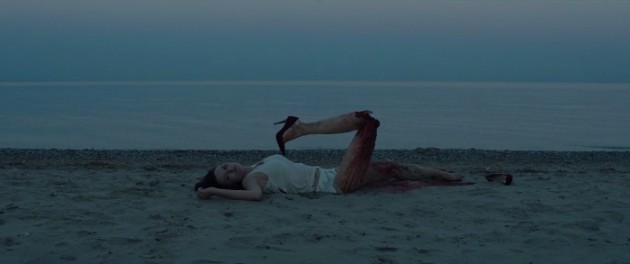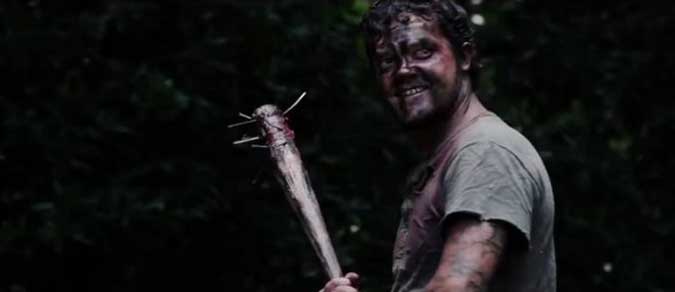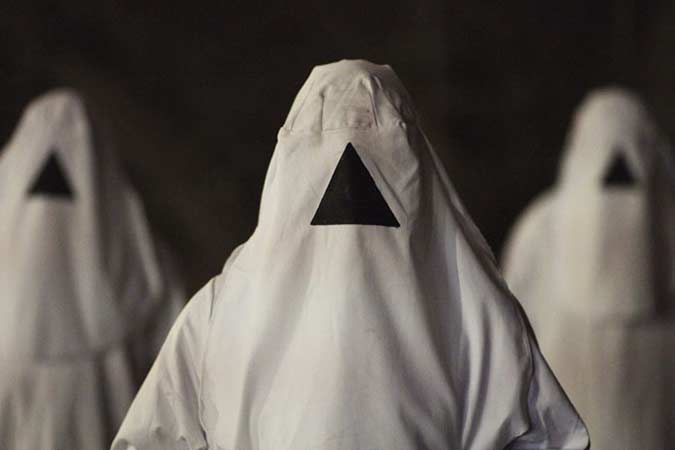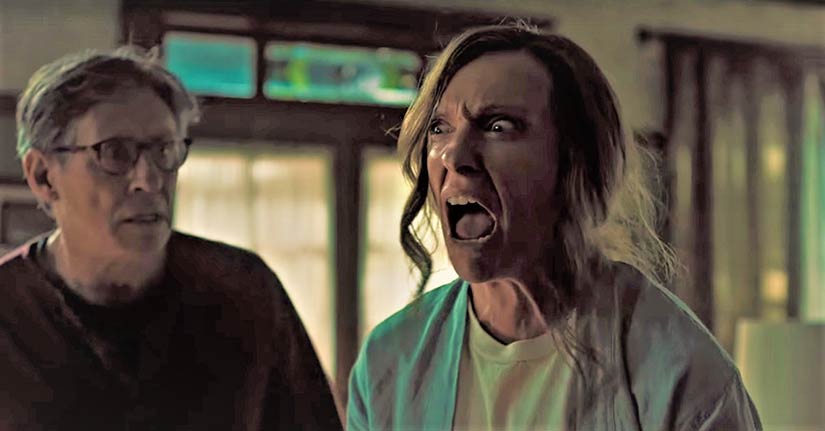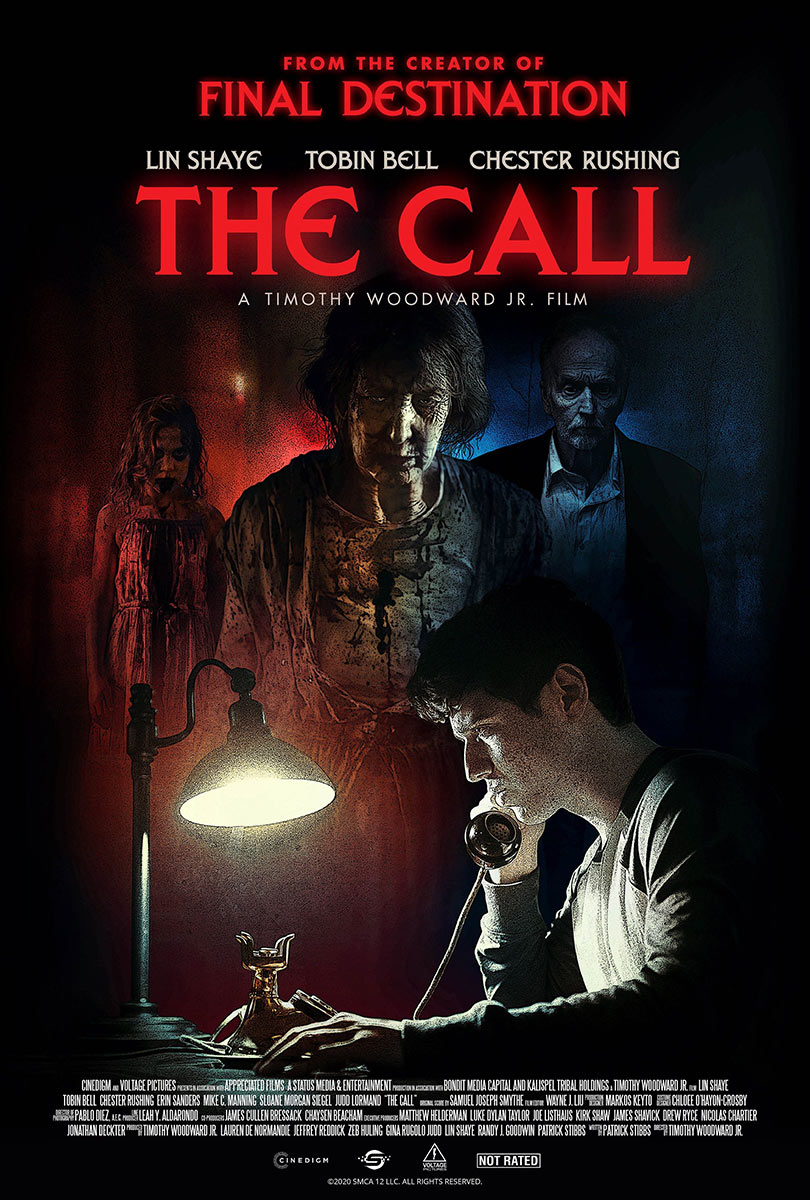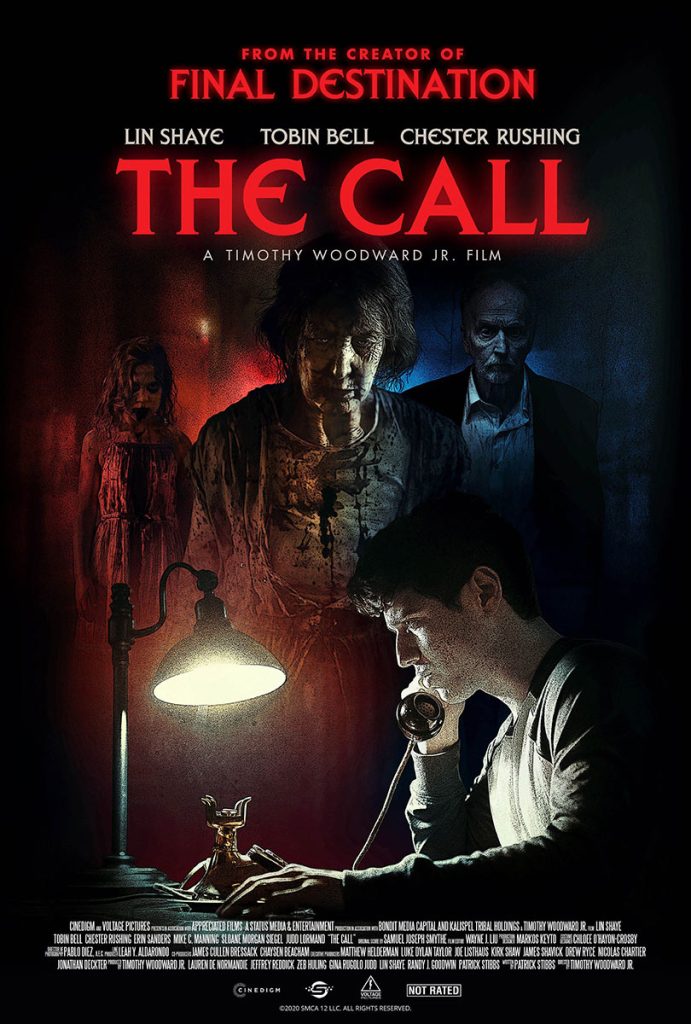
October is here, which means its officially horror movie season. Even though many things are different this year, there is no shortage of films being released in the genre. A few of them being: Blumhouse’s The Craft: Legacy, Magnet Releasing’s 12 Hour Shift, Hulu’s Books of Blood and Gravitas Ventures’ Don’t Look Back. Another notable title, Timothy Woodward Jr’s The Call, starring horror favorites Tobin Bell (SAW franchise) and Lin Shaye (Insidious franchise). The film is set in the fall of 1987 and follows a group of small-town friends who find themselves having to survive the night in the home of a sinister couple. What would a good horror film be without an equally terrifying score? Composer Samuel Joseph Smythe can answer this question. He is the one you can thank for The Call’s bone chilling tunes. We spoke with him exclusively below about his work on film and much more. The Call will be in theaters and drive-ins beginning October 2, 2020.
-How would you describe Timothy Woodward Jr’s new horror film, The Call, to audiences that haven’t seen the trailer yet?
I would say it’s a trip through the worst nightmares of teenagers in the 1980s. At the heart of the story is a town’s unsolved case of a missing little girl. The film weaves this mystery into an experience the teenagers have with a long-time suspect of the crime, Lin Shaye’s character. Through the film, we see the darkest fear-filled secrets these kids hold come to life. It’s got a real Nightmare on Elm Street vibe, too.
-Horror legends Tobin Bell (Saw franchise) and Lin Shaye (Insidious) star in the film. Did you give them specific themes to go along with their characters?
I used a main theme for the film that is specifically tied to Lin Shaye’s character’s story. It revolves around the mystery of the missing girl and how Lin’s character is involved with that story. There is a great scene where Tobin and Lin are performing together in a very dark emotional moment. I found a way to set the theme for the two of them using a few instruments in this scene that really ties the characters together in a twisted way. There’s a dark history between them, so I wanted to develop the theme’s arrangement throughout the score.
–The Call takes place in 1987. Did this affect how you scored the film at all?
Absolutely. Timothy and I had a lot of discussions at the start of scoring this film about how to craft that vintage 80s horror film sound with the music. Immediately we started naming off our favorite 80s horror film scores. As soon as we both mentioned Nightmare on Elm Street I knew what the music needed. Lots of classic synthesizer sounds pioneered by horror composer legends of that era! I set about working on creating some retro 80s synth parts to be peppered throughout the score.
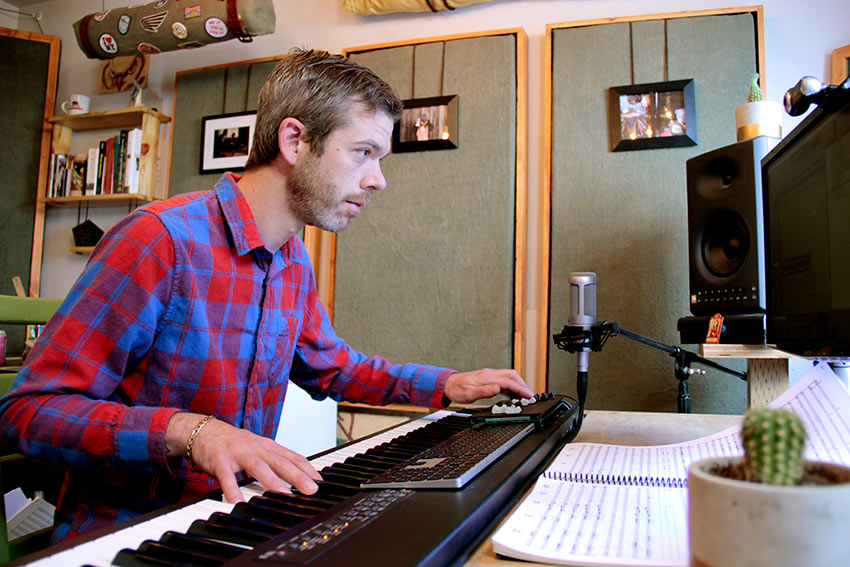
-Jeffrey Reddick, who created Final Destination is producing the film. With his credits, he is definitely well versed in the horror genre. Did he have any input on the score, or did you mainly get your direction from Timothy?
While I would have loved to have worked closely with Jeffrey on the score, I interfaced directly with Timothy throughout the scoring process for direction.
-A lot of composers talk about using non-musical objects to create unique sounds for their scores, especially the eerie sounding ones in horror projects. Did you do anything like this for The Call?
Timothy and I came up with an idea to use a twisted version of a very small girl’s voice for the main melody at specific points in the score. When he referenced the score for Nightmare on Elm Street I immediately had an idea. Having studied under that film’s composer, Charles Bernstein, over a decade ago, I remembered him talking about how he actually used his own voice manipulated through a synthesizer to sound like a really high female voice for melody. Instead of using my own voice I knew I wanted to use the voice of a little girl for the character of the little girl in the film. I found a friend who has a 4-year-old niece that can sing. He was gracious enough to bring a recording setup to her house and play a game with her to get her to sing each individual note of the melody, separated out. After I had each note separated, I then manipulated them in a creepy way through a synthesizer so I could trigger each note of the melody for the score. This worked absolutely fantastically and you begin to hear more and more of her singing the theme as the film progresses.
-We heard that you were inspired by John Carpenter for this score. Can you talk a little more about this?
Yes, John Carpenter is a legend when it comes to not only directing horror films but scoring them, too. I love his score for Halloween from the late 70s. He really pioneered bringing synthesizers into film scores when it was a relatively brand-new concept in that era. How he used them to create horror is fantastic. His sound really defined the 1980s horror film scene. I mainly wanted to use this type of sound in a lot of the most frightening terror-filled sequences of the film. There’s a lot of non-musical synth effects layered with an orchestra playing their instruments in non-musical abstract ways. I love creating hybrid scores using acoustic orchestral instruments combined with electronic synthesizer instruments.
-Do you have a favorite track from the film?
Yes, I always love the Main Titles from a film. That’s when the composer usually gets a chance to lay out a bit of the theme(s) and set the mood for the film that you’re about to see. Similarly, the End Credits are always fun, too. That’s when you might get to hear all of the themes and maybe some expanded music from the score that’s not used in the film. With The Call we start right into the story without any Main Titles so I loved writing the End Credits music. After our big ending (no spoilers!) I got to send those chills back down your spine when you’re in that “shocked” moment. It’s based on material from a few scenes toward the end of the film. I fleshed this out into a full-on version of the main theme with the synths, orchestra and little girl going all out. Definitely my favorite track, even though you don’t hear it until the very end of the film.
-You have scored a few horror projects. Why do you think your music resonates so well in this genre?
I love creating dramatic, emotion connections through music to what you’re seeing on the screen. Whatever that emotion is, be it joy, sadness, mystery, wonder, terror, etc., music has a way of telling a story that we all can connect to just through hearing it. As I go through my process of scoring horror films I really try to capture those initial reactions to what you’re seeing and highlight that emotion musically. I once worked for horror composer legend Chris Young many many years ago and I saw how he would watch the film for the first time and grab his own initial reactions to seeing a scene for the first time. You really have to live in the moment with the characters in order to do this because music doesn’t already exist with what you’re watching then, of course. This is ultimately storytelling and I absolutely love doing it with horror music because the audience really relies on you to keep them in that scary emotional moment that they’re captured in while watching the film.
-Is there a director you would really like to work with?
Do they still have to be living? Alfred Hitchcock!! haha… There are so many directors that have shaped my creative film scoring sound since childhood. Many of whom have basically partnered up with a composer for most of their projects. I’m talking about Alfred Hitchcock and Bernard Hermann, Steven Spielberg and John Williams, Tim Burton and Danny Elfman, Wes Anderson and Mark Mothersbaugh, etc. The list goes on. What I love about these director/composer relationships is the creative trust that is built between them. The director isn’t completely hands-off in the scoring process but trusts the composer with the musical end of the storytelling elements of the film. And the composer trusts the director’s vision of how that story should be shaped through music. That symbiosis is beautiful and I would love to work with any director in this way.
You can learn more about Samuel here: https://www.samueljosephsmythe.com/

